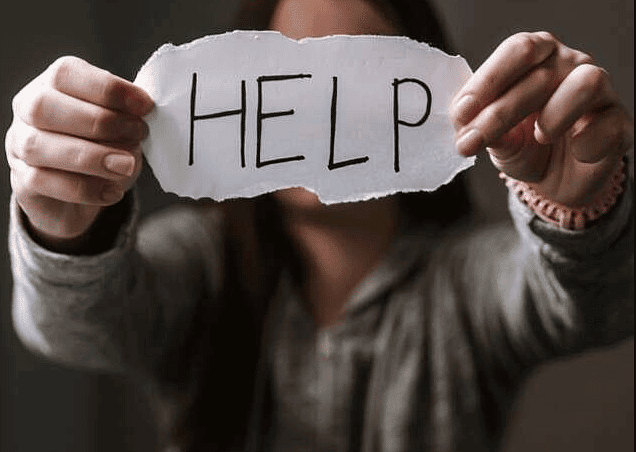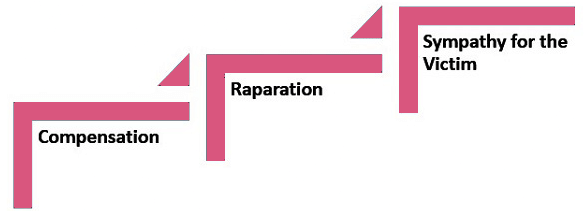UPSC Exam > UPSC Notes > Psychology for UPSC Optional (Notes) > Rehabilitation of Victims of Violence
Rehabilitation of Victims of Violence | Psychology for UPSC Optional (Notes) PDF Download
Introduction
The rehabilitation of victims of violence is a crucial aspect of promoting justice, healing, and societal harmony. By focusing on restoring offenders and supporting those who have suffered harm, rehabilitative services aim to enable individuals to lead productive lives and make positive contributions to themselves and society. In this article, we will explore the meaning of rehabilitating victims of violence, the rights of crime victims, avenues for seeking retribution, the significance of reparation, the need for comprehensive support services, and global efforts towards rehabilitating crime victims.
Meaning of Rehabilitation of Victims of Violence
Victims of violence, whether physically, emotionally, financially, or otherwise harmed, require rehabilitation to address the consequences of illegal actions. The term "victim" encompasses individuals or groups affected by criminal acts, irrespective of the familial relationship between the offender and victim or the legal status of the perpetrator. It also includes those who were harmed while trying to aid a distressed victim or prevent further victimization.

Crime Victims May Seek Retribution
- The legal system should ensure that victims of violent crimes have the opportunity for redress and receive fair and appropriate compensation, including means for complete rehabilitation. This includes compensation for dependents in case the victim succumbs to the abuse.
- Rehabilitation expenses may be awarded as compensation, even if the defendant is found not guilty or discharged during the trial. It is crucial to offer support when the criminal cannot be located for trial but the victim still requires assistance. Compensation is not contingent upon the conviction of the offender.
Reparation for Victims' Rights Infringement
Reparation is an essential means of making amends for grave wrongs committed against victims. While monetary restitution is commonly associated with reparation, other non-monetary forms of restitution should also be considered. Various forms of reparation, guided by principles and guidelines, exist to address the harm inflicted on victims.
- Sympathy for the Victim: Rehabilitating crime victims extends beyond financial compensation. It entails providing comprehensive services such as crisis intervention, counseling, emergency housing, advocacy within the criminal justice system, and emergency transportation. These support services are crucial in assisting victims on their path to recovery and rebuilding their lives.
- Rehabilitation of Women's Sexual Assault Victims: Recognizing the unique challenges faced by victims of sexual assault, the National Commission on the Status of Women has recommended the establishment of a Criminal Trauma Compensation Board to administer funds to rape victims. Additionally, if a victim becomes pregnant as a result of the assault, compensation for medical expenses, lost wages, and related losses can be provided. This program is specifically designed to cater to the needs of rape victims.
- Rehabilitating Those Who Have Been Tortured: The National Commission on Human Rights of India emphasizes supporting victims of torture in exercising their right to rehabilitation. One suggestion is to impose monetary fines on relevant police departments to generate funds for rehabilitation and compensation. While this approach can provide some restoration, delays can occur due to waiting for judgments and compensation.
- Rehabilitating Prison Inmates: The Supreme Court acknowledges a victim's right to compensation for crimes committed in custody. It highlights that civil action is not the sole recourse for a victim's family in cases involving custodial abuse. This reaffirms the importance of addressing the needs of victims and providing avenues for their rehabilitation.

Rehabilitating Crime Victims around the World
On a global scale, the United Nations Declaration recognizes the rights of crime victims, including access to justice, equitable treatment, restitution, compensation, and assistance. The proclamation serves as a foundation for victim rights worldwide. Efforts have been made to propose solutions for issues faced by victims of crime, particularly survivors of abuse of power.
Conclusion
Rehabilitating victims of violence is a crucial step towards healing, justice, and societal reintegration. By addressing the physical and mental injuries suffered by crime victims, rehabilitation programs provide the necessary tools for individuals to overcome the challenges associated with victimization. It is essential to recognize the rights of victims and ensure their access to comprehensive support services, fair compensation, and avenues for seeking redress. By promoting rehabilitation, society can help former offenders reintegrate into communities and support their path towards a transformed and stigma-free life.
The document Rehabilitation of Victims of Violence | Psychology for UPSC Optional (Notes) is a part of the UPSC Course Psychology for UPSC Optional (Notes).
All you need of UPSC at this link: UPSC
|
160 videos|215 docs
|
Related Searches
















